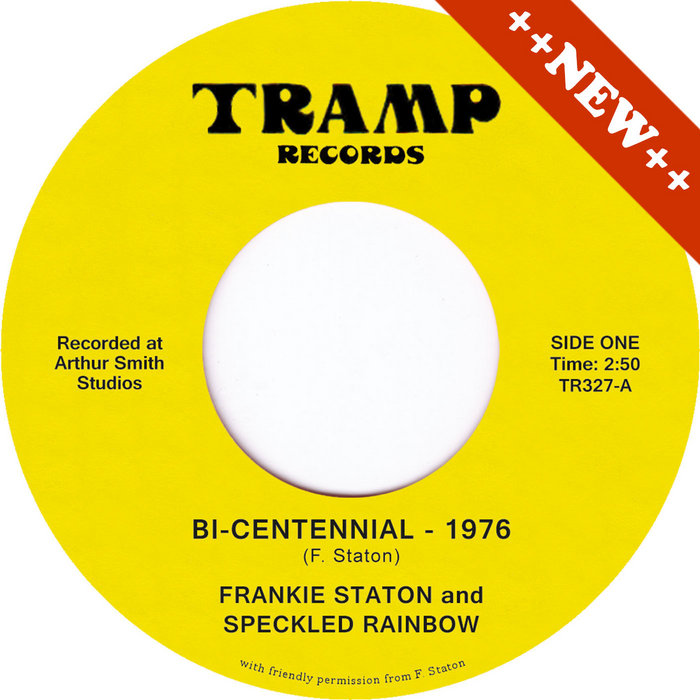
Love One Another – FRANKIE STATON & SPECKLED RAINBOW
this blog is GROOVY – check out great Soul, Funk, Jazz, Hip Hop, Bass, Breaks , Reggae, House n many more TUNES
Hey there, music lovers! Grab your favorite record or stream that funky playlist because we’re diving into the delightful and often riotous history of how music has championed racial equality. From the blues to hip-hop, artists have used their platforms to shake things up and demand justice, all while laying down some killer grooves.
Let’s kick it off in the deep South with blues, where African American musicians poured their hearts out about love, loss, and life’s injustices. Born out of spirituals and work songs in the late 19th century, this genre brought folks together through raw emotion. Legends like B.B. King gave us not just sweet guitar riffs but also stories that resonated deeply with racial struggles.
Did you know B.B. King named his guitar “Lucille” after a woman? No joke! He found himself involved in a bar fight over her (don’t ask), which led him to name his beloved instrument after her as a reminder not to fight over women anymore!
Moving on to jazz, we see another layer of creativity flourishing amidst oppression. The Great Migration saw thousands head from rural South to cities like New York and Chicago, bringing jazz along for the ride. And who could forget icons like Louis Armstrong? His trumpet wasn’t just an instrument; it was a rallying cry for freedom!
Jazz became synonymous with breaking down barriers during the Harlem Renaissance—a cultural explosion celebrating Black art forms amidst segregation. If that’s not groovy enough for you!
Armstrong had quite a sense of humor; he famously said he didn’t care what key they played in as long it sounded good—what matters is if you can dance!
Now let’s rock ‘n’ roll our way into the ‘50s when genres collided! Ever heard of Chuck Berry? He fused bluesy rhythms with energetic beats that got kids dancing—and maybe even stirred up some parents’ disapproval because gasp… teen rebellion was real!
Rock ‘n’ roll became an anthem against societal norms including racial segregation when artists crossed musical lines like no one before them.
Berry was known for his iconic “duck walk” during performances – picture him sliding across stage while playing guitar! It started as a way to avoid showing off his knees which he thought were ugly—who knew self-consciousness could lead to such legendary moves?
Then came Motown—the ultimate blend of slick production, catchy melodies, and profound messages shining light on racial unity in America. With hits from groups like The Supremes or The Temptations, this label paved new paths by crossing over into mainstream white audiences without losing its distinct sound.
Songs turned dance floors into movements—“Ain’t No Mountain High Enough,” anyone? They implored love despite divisions and called for equality through rhythm.
Motown’s founder, Berry Gordy Jr., originally wanted to be a boxer before discovering his musically inclined destiny—imagine if we had “Berry Gordy’s Boxing” instead!
Fast forward into the birth of hip-hop in New York City during the late 1970s—a vibrant mix combining DJ culture with storytelling rap styles reflecting urban realities faced by marginalized communities. Groups like Public Enemy took center stage using their platform boldly speaking against racism—you couldn’t ignore their message under all those powerful beats!
Their song “Fight The Power” became an anthem inspiring generations advocating social change throughout various movements—including civil rights protests today.
Ever hear about Ice-T being more than just an influential rapper but also starring as Detective Odafin Tutuola on Law & Order: SVU? Talk about multitasking between dropping bars and solving crimes—it seems crime doesn’t pay unless you’re rapping about it!
Today’s artists continue pushing boundaries around racial equality—from Kendrick Lamar challenging systemic injustice in tracks like “Alright,” reminding us that there’s always hope ahead even amid struggle—to Beyoncé weaving empowerment themes within her artistry—the groove continues strong.
Music isn’t merely entertainment; it’s been pivotal throughout history echoing cries for liberty while binding people together regardless simply based upon skin pigmentation differences—all wrapped beautifully within infectious rhythms guaranteed getting toes tapping along indeed farther than these words could illustrate alone…
So crank up those speakers loud & proud every chance you get because whether celebrating diverse voices or amplifying calls against inequalities—we’re riding this harmonious wave still going onward together until true equality satisfies everyone… now isn’t that truly something worth grooving about?
Keep jamming,
Your Friendly Music Historian 🎶

Love One Another – FRANKIE STATON & SPECKLED RAINBOW